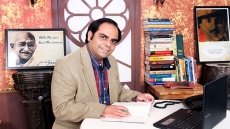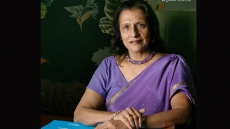The director of the brilliant film ‘Punching at the Sun’, Chopra uses his filmmaking chops to challenge the mainstream portrayal of Asian Americans on screen.
Born in New York and raised in California, Tanuj Chopra is out there to transfer his artistic creativity onto screens, fighting stereotypes along the way. Chopra completed his undergrad at Brown University where he studied Art Semiotics. Right after that he began work in India and produced an Arts & Culture TV show for the channel Doordarshan. Two years later he graduated from Columbia Film School for an MFA in Film Direction.
The brilliant ‘Punching at the Sun’ made his debut into the world of feature films and Chopra has been involved in the field ever since. He has been working on a variety of projects, under the company Chops Films. His work has been thoroughly appreciated especially by the South Asian community in North America. His film ‘Butterfly’ not only received a number of awards but was also screened in around twenty locations around the world at different festivals.
Q & A With Tanuj Chopra
What would you consider the biggest factor behind your success today? Would you credit your time at the Columbia University School of Arts more or your own creativity?
I think having a supportive net-work of family and friends is the biggest factor. Part of that comes from my time at Columbia, but it's bigger than education or my innate creative abilities. Filmmaking is a collaborative art and I'm lucky to work with writers, actors, producers, and technicians who join with me to realize these visions. I've been surrounded by good people since day one and it is pretty vital in filmmaking.

Where do you get your inspiration from?
I think I'm inspired by a mixture of other films and my own life experiences. Inspiration is fickle and mysterious. It's sometimes difficult to identify the source. I think we're constantly absorbing data and mixing it in our subconscious – we spit out those ideas later when we create.
For me, my awareness is most heightened when watching good films and when I spend time with good friends. Generally those things trigger creative thought.
You are also involved with the New Voices Youth Film Making initiative. How has this experience been, how do you see the future of younger filmmakers and is there any message that you would like to give to them?
I love New Voices for Youth. Any time you can impact the lives of younger people and train them in technology they've never been exposed to like cameras and editing systems it's a good thing. I teach kids to make their films – I say do it all from concept to completion. Video technology is
sitting in your pocket on your cell.
I teach them not to be intimidated by barriers and to tell their stories.
What opportunities is the film industry presenting to Asian-American film makers such as yourself? How do you see yourself and others fighting stereotypical characters and themes that are supported by the mainstream media?
I think there's always space for people who are funny or do genre really well. Talent is talent and people who stay persistent and work at their craft can find their way into main-stream work. It's really not that hard to make alternative work that chall-enges mainstream portrayals of Asian Americans – you literally have to create something with more than one Asian American character in it and you've already challenged the mainstream. That being said, I try to stay away from culturally predetermined archetypes and try to build characters in three dimensions regardless of race.


